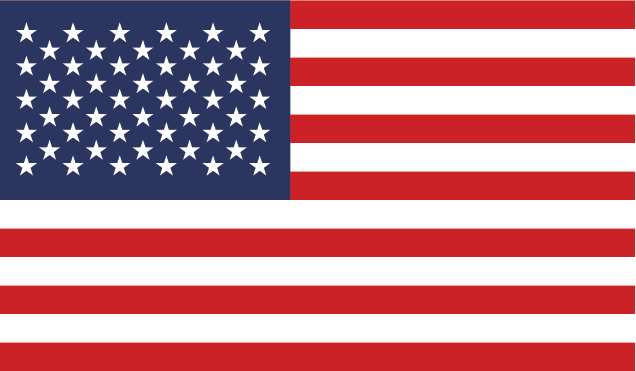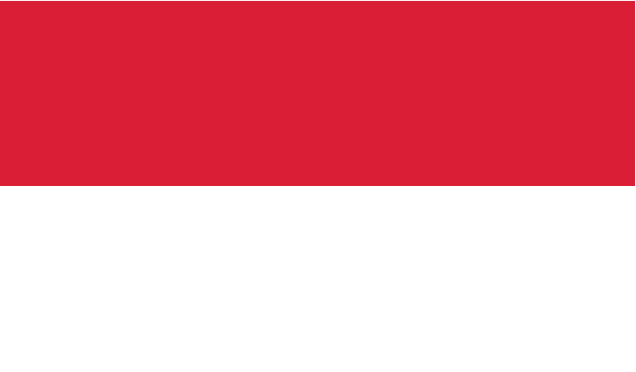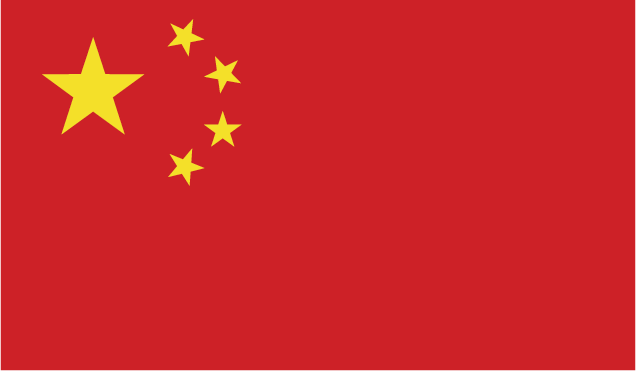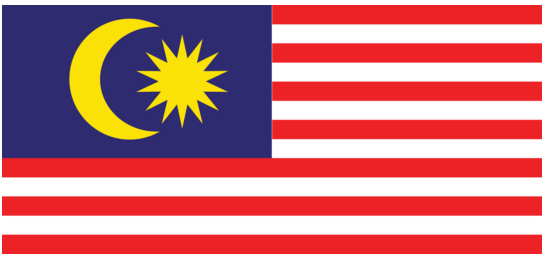
How to Set Up Manufacturing in Indonesia: A Step-by-Step Guide
how to set up manufacturing in Indonesia
Introduction to Manufacturing in Indonesia
Indonesia stands out as a premier hub for manufacturing, offering an irresistible blend of strategic advantages, investor-friendly policies, and a booming industrial sector. Situated at the convergence of Asia's most dynamic markets, this archipelago provides seamless access to key economies in Southeast Asia, Australia, and beyond. On top of that, its colossal and ever-expanding population creates a lucrative domestic market brimming with potential. To sweeten the deal, Indonesia's government has rolled out a series of enticing incentives and comprehensive regulatory reforms aimed squarely at attracting foreign investment—making it a magnet for global enterprises eager to scale their manufacturing operations.
Benefits of Manufacturing in Indonesia
- Strategic Location: With its prime position in the heart of Asia-Pacific, Indonesia unlocks streamlined trade flows to neighboring nations and sits astride some of the world’s most critical shipping lanes—perfect for exporting goods on a global scale.
- Government Incentives: From tax holidays to subsidies, Indonesia’s pro-investment policies are structured to give foreign manufacturers a competitive edge in setting up operations.
- Expansive Domestic Market: Boasting a population of over 270 million, Indonesia is home to a thriving consumer base, offering businesses endless opportunities to satisfy robust local demand for manufactured goods.
- Abundance of Natural Resources: Blessed with a treasure trove of resources ranging from textiles to agricultural commodities and raw materials, Indonesia provides the foundation for industries like food processing, electronics, and apparel manufacturing to flourish.
Purpose of the Guide
This guide is crafted to serve as your go-to handbook for establishing manufacturing operations in Indonesia. It dives deep into the nuts and bolts of the setup process, providing insights on navigating Indonesia’s regulatory landscape, acquiring requisite licenses, selecting ideal locations, and building a skilled local workforce. Beyond implementation, the guide emphasizes the critical role of employee training and development while offering a balanced perspective of the challenges and growth opportunities that lie ahead for manufacturers in the region.
What Readers Can Expect to Learn
By delving into this guide, readers will gain actionable knowledge across a spectrum of key areas:
- Regulatory Framework: A clear and concise breakdown of Indonesia's legal landscape for foreign investors, from permits and licenses to environmental compliance.
- Step-by-Step Setup Process: A detailed walk-through simplifying complex processes like business registration, site selection, and operational rollout.
- Training and Development: Proven strategies for enhancing employee skills to boost productivity while ensuring alignment with local labor laws.
- Challenges and Opportunities: A candid look at potential hurdles—be it logistical, cultural, or regulatory—complemented by insights into untapped opportunities for growth.
By the time you reach the conclusion of this guide, you'll be well-prepared to navigate the intricate pathways of Indonesia’s manufacturing ecosystem and leverage its abundant opportunities for industrial success.
Navigating Indonesian Regulations and Licensing
Indonesia presents a dynamic yet intricate landscape for foreign investors aiming to set up manufacturing operations. At the heart of this regulatory environment is the Investment Coordinating Board (BKPM), which plays a pivotal role in streamlining the investment journey. Complementing this is the Online Single Submission (OSS) system, a groundbreaking digital innovation designed to simplify licensing procedures and facilitate seamless interaction with governmental processes.
The Unified Roles of BKPM and OSS
The BKPM serves as a gateway for investors, acting as a one-stop solution for a range of services, including guidance on regulatory compliance, processing investment applications, and obtaining necessary licenses and permits. By centralizing these services, BKPM significantly reduces red tape, enabling foreign investors to establish their businesses more efficiently.
On the other hand, the OSS system represents a leap forward in regulatory streamlining. By digitizing the licensing process, OSS empowers businesses to submit applications, track approvals, and obtain permits online. This not only slashes bureaucracy but also enhances transparency—qualities that are critical for foreign manufacturers navigating Indonesia's regulatory framework.
Essential Regulations for Manufacturing Operations
Foreign Ownership Restrictions
Regulations regarding foreign ownership are carefully outlined in Indonesia’s Negative Investment List, which classifies sectors as open, closed, or restricted to foreign ownership. Industries such as agriculture and media often impose ownership limitations to safeguard domestic interests, underscoring the need for due diligence before launching operations in Indonesia.
Zoning Regulations
To maintain a balance between industrial growth and environmental or residential harmony, Indonesia enforces strict zoning laws. Manufacturing facilities must align with designated industrial zones, as determined by local governments. Compliance with these zoning regulations is not optional—violations can lead to significant legal and operational setbacks.
Environmental Approvals
Environmental compliance is a cornerstone of regulatory adherence in Indonesia. Guided by Law No. 32/2009 on Environmental Protection and Management, businesses are obligated to secure environmental permits before operations commence. This legislation enforces strict standards for air and water quality, with violations carrying severe penalties:
| Provision | Violation | Penalties |
|---|---|---|
| Article 98 | Willful breach of air or water quality standards | Fine: Rp. 3–10 billion, Imprisonment: 3–10 years |
| Article 99 | Negligent breach of air or water quality standards | Fine: Rp. 1–3 billion, Imprisonment: 1–3 years |
| Article 100 | Repeat offenses involving wastewater or emissions | Fine: Up to Rp. 3 billion, Imprisonment: Up to 3 years |
Given the stakes, prioritizing environmental compliance is non-negotiable for manufacturers.
Handling Hazardous Substances
The management of hazardous substances is rigorously controlled under Government Regulation No. 74/2001, which enforces a lifecycle-based control of toxic chemicals. Whether during storage, usage, or disposal, businesses must adhere to these robust guidelines to ensure safety and avoid penalties associated with the mishandling of such substances.
A Step-by-Step Guide to Compliance
To successfully navigate Indonesian regulations, manufacturers must follow a structured approach:
- Business Registration: Secure a business license by registering your company with the appropriate authorities.
- Environmental Impact Assessment (EIA): Conduct a comprehensive EIA to identify potential environmental risks and secure the necessary permits.
- Zoning Adherence: Confirm that your manufacturing site is situated within an approved industrial zone.
- Licensing Through OSS: Utilize the Online Single Submission (OSS) platform to expedite the application process for operational permits.
- Labor Law Compliance: Align with local labor standards, covering areas like employee rights, training, and workplace development.
By embracing this meticulous process, foreign manufacturers can establish their foothold in Indonesia while maximizing business potential and mitigating legal or operational challenges. Leveraging Indonesia’s strategic location and economic potential, businesses stand ready to unlock vast opportunities in Southeast Asia’s largest economy.
Step-by-Step Guide to Setting Up Manufacturing in Indonesia
Launching a manufacturing operation in Indonesia entails navigating a series of crucial steps, each designed to ensure regulatory compliance while setting a strong foundation for your business. Below is a carefully laid-out roadmap to help you establish your facility with precision and efficiency:
1. Business Registration
The cornerstone of your manufacturing endeavor begins with registering your business. This process involves securing a Business License (SIUP) and a Company Registration Certificate (TDP) through the Ministry of Law and Human Rights. You’ll need key documents like your articles of association, proof of domicile, and identification details for shareholders and directors. Fortunately, Indonesia’s Online Single Submission (OSS) platform simplifies the process, allowing you to submit applications and monitor real-time updates in one centralized location.
2. Obtaining the Necessary Licenses
Once your business is registered, the next step is obtaining essential operational permits. This usually starts with an Industrial Business License (Izin Usaha Industri) from the Ministry of Industry. If your line of production involves specific sectors such as chemical or food manufacturing, you may have to meet additional regulations tailored to that industry. The OSS system also plays a pivotal role here by streamlining the submission and approval of license applications.
3. Environmental Compliance and Approvals
Environmental responsibility is a key part of operating in Indonesia. Under Law No. 32/2009 on Environmental Protection and Management, you’re required to conduct an Environmental Impact Assessment (EIA) and acquire an Environmental Permit before initiating operations. This process evaluates potential environmental risks associated with your facility and outlines safeguards to mitigate them. Non-compliance is met with serious consequences, ranging from steep fines to operational shutdowns, so it’s crucial to prioritize sustainability from the outset.
4. Finding the Ideal Location
Selecting the right site for your manufacturing facility is pivotal for both compliance and operational success. Consider one of Indonesia’s Industrial Estates or Special Economic Zones (SEZs), which often feature ready infrastructure, utilities, and tax incentives. SEZs also streamline regulatory processes, saving you time and resources. Be sure, however, to confirm that your chosen location aligns with local zoning laws to avoid potential setbacks.
5. Building Your Workforce
A reliable workforce is the backbone of your manufacturing operations. Indonesian labor laws mandate compliance with regulations governing employee rights, training initiatives, and workplace welfare. Utilizing local recruitment agencies, establishing partnerships with universities, and actively engaging in employee development programs are all effective strategies for building a capable team. By investing in workforce training and upskilling, you not only improve productivity but also ensure adherence to Indonesian labor standards.
6. Managing Hazardous Substances
If your manufacturing processes involve hazardous chemicals or materials, adhering to Government Regulation No. 74/2001 on Hazardous and Toxic Substances Management is a non-negotiable. This law governs the safe handling, storage, and disposal of such substances throughout their lifecycle. Maintaining regulatory compliance in this domain not only safeguards your employees but also shields your business from potential penalties and reputational damage.
7. Halal Certification for Specific Industries
Businesses involved in sectors such as food, beverages, and cosmetics manufacturing may require Halal Certification. This certification—administered by the **Halal Product Assurance Agency (BPJPH)**—proves that your products and processes align with Islamic standards. Given that Indonesia has the largest Muslim population in the world, Halal certification can act as a powerful value proposition and help you unlock a significant segment of the domestic market. The official website of Halal Product Assurance Agency (BPJPH) is https://www.halal.go.id/.
8. Final Operational Readiness
With all legal, regulatory, and operational hurdles cleared, the last phase involves finalizing your facility setup. Install production equipment, establish an efficient supply chain, and kickstart production. Regular audits and compliance checks should be integrated into your operations to ensure ongoing alignment with Indonesian regulatory frameworks. Smooth operations from day one will set the tone for long-term success.
By systematically addressing each step and prioritizing compliance, you can establish a manufacturing facility in Indonesia that not only meets local requirements but also positions you for growth and sustainability. With the right planning and execution, you’ll be well on your way to thriving in one of Southeast Asia’s dynamic industrial hubs.
Manufacturing Training and Development in Indonesia
In the fast-evolving manufacturing landscape of Indonesia, training and development emerge as pillars of productivity and regulatory compliance. Beyond sharpening employee capabilities, effective training programs align with the nation’s labor laws, which prioritize employee rights and workplace well-being. Below, we delve into why training is indispensable, explore innovative methods like online and blended learning, and illustrate how these approaches drive operational excellence.
Importance of Training in Manufacturing
For manufacturing firms operating in Indonesia, training isn’t just a best practice—it's a necessity. It serves as a direct link to productivity gains and ensures adherence to local regulations. Indonesian labor laws compel employers to provide sufficient training, ensuring workers possess the skills required to perform their roles effectively. Moreover, robust training programs help minimize errors, strengthen quality control measures, and elevate overall efficiency. When manufacturers focus on workforce development, they not only boost their profitability but also contribute to the broader economic growth of the country.
Effective Training Methods
Online Learning
Gone are the days when training meant gathering employees in a room for hours. Today, online learning offers a flexible, accessible solution that meets the dynamic needs of manufacturing teams. These platforms host a spectrum of training content—from essential safety guidelines to cutting-edge technical practices. They also facilitate real-time feedback and assessments, which are critical for recognizing skills gaps and addressing them promptly. For employers and employees alike, this blend of convenience and customization is a game-changer.
Blended Learning
Blended learning bridges the gap between traditional classroom sessions and modern digital tools, offering the best of both worlds. This hybrid approach allows hands-on practice for vital technical competencies while using online resources for theoretical learning. For the manufacturing sector, where practical expertise is non-negotiable, blended learning ensures a well-rounded, impactful training experience that enriches both the mind and hands-on abilities.
Compliance with Local Regulations
Navigating Indonesia’s regulatory framework requires more than surface-level understanding—it demands thorough preparation. Comprehensive training programs ensure employees grasp and comply with labor laws and environmental requirements. For instance, a well-designed course on environmental compliance equips teams to align operations with Law No. 32/2009 on Environmental Protection and Management, safeguarding companies from hefty fines or reputational risks. Similarly, addressing labor law compliance fosters respect for employee rights, creating a harmonious workplace and minimizing the odds of legal entanglements.
Implementing Training Programs
Developing and executing a successful training strategy in Indonesia involves these crucial steps:
-
Needs Assessment
Systematically identify skill gaps and prioritize training areas through a detailed evaluation. -
Curriculum Development
Create targeted content that addresses identified shortcomings and adheres to local compliance mandates. -
Delivery Methods
Select the most effective delivery channels—whether online platforms, blended formats, or something else—based on organizational needs and employee schedules.
- Evaluation and Feedback
Continuously measure training outcomes and gather feedback to refine and improve future initiatives.
By committing to well-structured training and development programs, manufacturers in Indonesia stand to achieve more than just compliance or efficiency—they position themselves as leaders in the nation’s dynamic manufacturing sector. This investment in human capital not only secures immediate gains but also sets the foundation for sustained success in an ever-competitive industry.
Challenges and Opportunities in Indonesian Manufacturing
Manufacturing in Indonesia offers a dynamic blend of hurdles and possibilities. While operational inefficiencies and regulatory complexities may present stumbling blocks, the nation also holds enormous potential for growth, supported by strategic incentives and expansive market opportunities.
Challenges in Indonesian Manufacturing
Infrastructure Issues
Indonesia’s infrastructure, despite ongoing improvements, remains a significant obstacle for manufacturers. Congested ports, inefficient transportation networks, and inconsistent power supplies often disrupt operations, driving up costs and dampening competitiveness. These logistical bottlenecks can erode the agility and profitability needed to thrive in today's global economy.
Regulatory Compliance
For foreign investors, navigating Indonesia's labyrinthine regulatory framework can feel overwhelming. Between foreign ownership restrictions, zoning requirements, and strict environmental mandates like Law No. 32/2009 on Environmental Protection and Management, even the most seasoned businesses find themselves under pressure. Non-compliance risks range from costly fines to harsher penalties like imprisonment. Navigating these regulations isn’t just a necessity—it’s a significant investment of both time and resources.
Labor and Skill Challenges
Indonesia boasts a large workforce, yet there’s often a misalignment between the skills available and those required to meet modern manufacturing demands. Employers frequently struggle to recruit and retain talent capable of handling advanced processes. To further compound matters, labor laws strongly prioritize employee rights, requiring businesses to bolster training initiatives to harmonize compliance with productivity goals.
Opportunities for Growth in Indonesian Manufacturing
Government Incentives
The Indonesian government has rolled out various incentives to entice investors and fuel the manufacturing sector. Initiatives like tax holidays, subsidies, and the Online Single Submission (OSS) system streamline bureaucratic red tape and cut operational costs. These policies make Indonesia far more appealing to global manufacturers seeking a cost-competitive production base.
Expanding Domestic Market
With over 270 million people, Indonesia’s booming consumer class offers manufacturers a vast domestic audience eager for quality goods. Establishing local production hubs allows businesses to not only slash import overheads but also cater products to meet distinctly local tastes—an approach that can significantly increase market penetration.
Strategic Location
Positioned at the crossroads of Southeast Asia, Indonesia enjoys unparalleled access to both regional and international markets. Its proximity to busy shipping routes strengthens its position as a global trade hub, enabling manufacturers to efficiently serve customers at home and export to key global economies with ease.
Potential for Diversification
Indonesia’s manufacturing landscape is ripe for diversification, with opportunities spanning sectors like textiles, food processing, automotive components, and electronics. Beyond traditional industries, the government’s push toward renewable energy and sustainability opens new doors for businesses ready to invest in environmentally-conscious practices. Expanding into these burgeoning segments can help mitigate risks and foster long-term growth by reducing reliance on single markets or products.
Conclusion
While Indonesia’s manufacturing sector isn’t without its challenges, the opportunities for innovation and expansion are compelling. By addressing logistical and regulatory barriers while capitalizing on government incentives, an expanding consumer base, and a prime geographic advantage, businesses can harness Indonesia’s full potential. For those willing to navigate its complexities, Indonesia offers a fertile ground for sustainable growth and success in the global marketplace.
Conclusion and Future Outlook for Manufacturing in Indonesia
Summary of Key Points
Indonesia offers a robust foundation for building manufacturing operations, thanks to its strategic position, pro-investment government initiatives, and expansive domestic market. This guide has outlined the crucial steps to establishing a manufacturing presence, from decoding Indonesia's regulatory framework to obtaining necessary permits and assembling a skilled workforce. It has also underscored the pivotal role of workforce development in ensuring regulatory compliance and boosting operational efficiency.
Future Outlook
The horizon for Indonesia's manufacturing sector is undeniably bright. With reforms aimed at attracting foreign investments and bolstering competitiveness, the government is paving the way for sustainable industrial growth. Initiatives like the Online Single Submission (OSS) system are streamlining licensing processes, while attractive incentives such as tax holidays and subsidies make Indonesia an appealing choice for global manufacturing players.
Adapting to Changing Conditions
Success in Indonesia's dynamic landscape hinges on versatility. Businesses must proactively adapt to evolving regulations, such as Law No. 32/2009 on Environmental Protection and Management, as well as shifts in consumer preferences and technological advancements. By integrating innovative practices and prioritizing sustainability, manufacturers can position themselves at the forefront of emerging opportunities, particularly in areas like renewable energy and environmentally conscious production processes.
Opportunities for Diversification
Indonesia's rich economic landscape provides fertile ground for diversification into various industries, including textiles, food processing, electronics, and automotive components. Such diversification not only mitigates risks associated with over-reliance on a single market but also promotes long-term resilience. Indonesia’s prime geographic location further strengthens its appeal as a gateway to regional and international markets, reinforcing its position as a vital hub for global trade.
In conclusion, while challenges remain, Indonesia’s manufacturing sector presents boundless opportunities for growth and transformation. By embracing the country’s complexities and tapping into its vast potential, businesses can carve a path to sustainable success on both regional and global scales.
Discover the Power of PONGO for Your Manufacturing Success
Unleashing E-Commerce Potential with PONGO
PONGO TECH, a leader in Southeast Asian digital marketing, offers robust services tailored for manufacturers looking to expand their market presence. By incorporating cutting-edge data analytics and live streaming solutions, PONGO enhances product visibility and streamlines consumer engagement. Whether you're just entering the Indonesian market or aiming to amplify your brand's reach, the integration of PONGO's innovative strategies can significantly boost your market impact.
Why Partner with PONGO?
Recognized for their exceptional capabilities in live streaming and influencer partnerships, PONGO TECH positions your brand at the forefront of consumer innovation. With a proven track record in driving brand success—evident in collaborations with industry giants such as Haier and OPPO—PONGO Tech provides a competitive edge through tailored marketing solutions that capture unique consumer insights and behaviors.
Solving Your Market Challenges
As you navigate the complexities of setting up manufacturing in Indonesia, PONGO's comprehensive marketing strategies offer solutions to common industry challenges, such as enhancing brand visibility and effectively engaging with your target audience. With a vast network of influencers and live streaming experts, PONGO ensures your brand resonates within the local market, cultivating long-term customer loyalty and growth.
Take the Next Step with PONGO
Ready to accelerate your brand's success in Indonesia's dynamic market? Contact PONGO TECH today to learn more about how our services can elevate your manufacturing operations. Visit us at Contact Us to start your journey towards market leadership.
By providing these dynamic marketing solutions, PONGO TECH stands as a trusted partner in navigating the evolving landscape of manufacturing in Indonesia, ensuring your brand not only meets but exceeds industry standards and consumer expectations.
 English
English 



